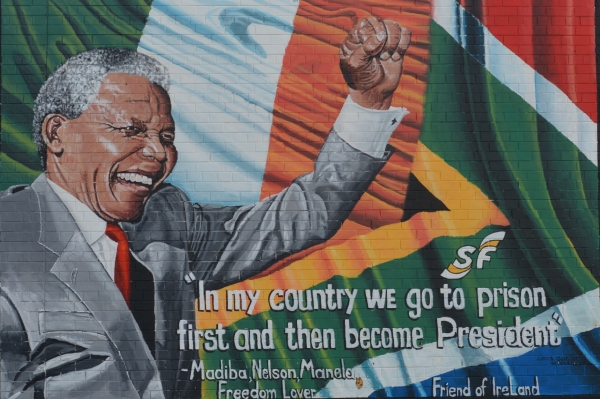Celebrating Madiba: a bright light reflected and refracted in a thousand tiny ways on Mandela day
DATE: 19 July 2019
AUTHOR: Andrea Teagle
On what would have been Nelson Mandela’s 101 birthday, South Africans around the country engaged in acts of giving: from redistributing food to the homeless, to collecting sanitary items for girls who cannot afford them, to reading, building, doing. As part of its celebrations, the HSRC hosted a public seminar on Mandela’s role in the struggle for social justice.
“If it needs to be, it is an ideal for which I am prepared to die.” This statement, made by former president Nelson Mandela shortly before he was sentenced to life at the Rivonia trial in 1964 sent ripples through the world. It is still passed from mouth to mouth today, a cherished reminder of the conviction and sacrifices of the struggle icon.
Speaking at an HSRC seminar on Nelson Mandela International Day, Chief Research Specialist of the HSRC’s Democracy, Governance and Service Delivery unit Dr Greg Houston recalled the events of that time, and the emergence of Mandela as a symbol of the resistance.
Mandela’s birthday on 18 July has been declared Nelson Mandela International Day. and it has become custom for thousands of South Africa to engage in “67- minute” deeds – in remembrance of the 67 years Mandela spent behind bars. This serves to remind us that Mandela himself was part of a collective of women and men who fought together for freedom and equality.

Nelson Mandela was loved for his sense of humour as well as his contributions to social justice. Photo: Ben Kerckx, Pixabay
One of Madiba’s most important contributions was, through his unwavering commitment to justice, and his vision of inclusivity, to help to draw together those bright lights of resistance into a constellation. Thus, a proper celebration of Mandela places him among those who fought before and alongside him – and indeed, those who came after.
“When we honour Nelson Mandela, we honour all those South Africans, as well as many people around the world, who sacrificed and contributed to the struggle for social justice,” Houston said, imploring us to remember, too, the likes of Robert Sobukwe, Solomon Mahlangu, Steve Biko, Albertina Sisulu and others.
Fellow speaker Professor Sandy Africa, Deputy Dean of the Faculty of Humanities at the University of Pretoria, also noted a growing counter-narrative, in the context of an ongoing struggle for equality in South Africa, of Mandela “the sell-out”, that belies his critical contributions to the struggle.
“I think there is a dangerous tendency to reimagine and represent Mandela’s life and legacy as one of political compromise and of failing the African people. But this idea does not do justice to his political acumen, the calculated political risks he took … let alone the enormous personal sacrifices that he made.”
Referring to the reductionist images of Mandela today that threaten to obscure his legacy, Professor Carolyn Hamilton and historian Xolela Mangcu pointed out at the Dalibhunga colloquium earlier this year that much of the Mandela archive -- and black political history more generally -- remains fragmented, incomplete and unexplored.
Highlighting the need to revisit historical texts, Africa recalled some of Mandela’s key strategic choices: the decision to reject the more cautious approach of the old guard of the ANC, and to revitalise the movement with the formation of the youth league, the decision to turn to the armed struggle, his 1985 rejection of the conditional offer of his release, and the later decision to suspend the armed struggle to kick-start talks to end the Apartheid state.
Mandela viewed his own contribution to the struggle as carrying the baton a short way in a relay. Yet, because of the vision and bravery of men and women like him, South Africa looks very different to the country that Madiba spoke to during the Rivonia trial. Today, South Africa’s youth, Houston argued, see as incomprehensible some of the realities of living under Apartheid, such as the segregation of black and white people in public spaces.
Noting ongoing injustices in South Africa and globally, Houston expressed the hope that the youth of tomorrow find these realities equally incomprehensible.
“May they see it as equally incomprehensible, because of the actions of those of us who, like Mandela “were so angry, passionate and convinced that their causes were just that they made sacrifices and contributed to the elimination of these social injustices.”

